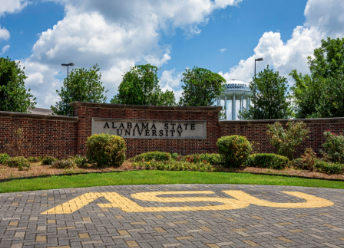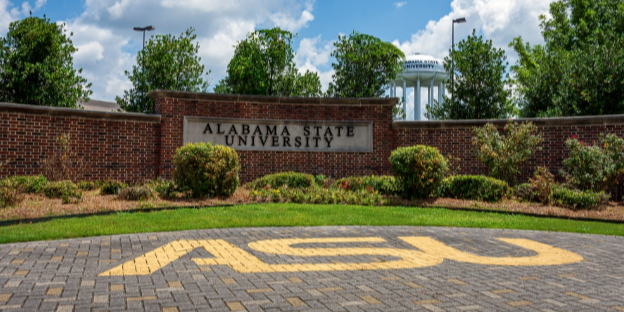
JNix/ Shutterstock
In this month’s Higher Ed Careers interview, hear from presidents of two Historically Black Colleges and Universities (HBCUs) who are serving on the Board of Advisors for the White House Initiative on Advancing Educational Equity, Excellence, and Economic Opportunity through HBCUs. They discuss the many achievements of this group of colleges and how the higher education community and government leaders can help them thrive.
Kelly Cherwin, HigherEdJobs: Please provide an update on the current state of HCBUs. How have they rebounded from the effects of the pandemic, and how are they dealing with the enrollment cliff? What is your perspective on what the future holds for these institutions?
Dr. Makola M. Abdullah, president of Virginia State University: I am exceedingly proud of Virginia State University and our fellow HBCUs. We are doing well, and we are doing good. HBCUs have a history of resilience which helped us during COVID. This same resilience will carry us into the future. Many of us are not only surviving; we are thriving. Our schools are seeing a resurgence in enrollment, and we continue to position ourselves as transformative leaders in higher education.
Dr. Quinton T. Ross, Jr., president of Alabama State University: Alabama State University emerged stronger than ever from the effects of the pandemic. HBCUs are seeing a surge in the number of applicants. Our institutions have always functioned and done more with less — that’s exemplified by being the foundation of the black middle class in this nation.
I share the same philosophy with my leadership team, here on campus that “you have to go to know.” I think the more that people begin to visit our HBCUs and begin to understand and know our institutions, they will have a greater appreciation and understanding for what we do. A simple visit would make anyone want to be a part of these historic institutions that have contributed so much to the nation.
I think that the outlook for HBCUs is limitless. We’re definitely on the move, and we continue to be a resource for our scholars who are going out to make a difference in the world. As an HBCU graduate, I’m a prime example of what an HBCU can do for our students. Our institutions were born out of necessity during a time when African Americans couldn’t go anywhere else. We had to create educational opportunities for ourselves. It’s interesting that we’ve just celebrated our Founders’ Day. We’re an institution that’s over 155 years old, and when I reflect back to the nine freed slaves who founded Alabama State University with $500 — they would never attend the institution that they founded but had the foresight and wherewithal to provide an institution of higher education for children that were yet unborn. Long before we were designated as Historically Black Colleges and Universities, we were elite institutions of higher education — and still are today.
Cherwin: You were recently appointed to the Board of Advisors for the White House Initiative on Advancing Educational Equity, Excellence, and Economic Opportunity through Historically Black Colleges and Universities. What led you to accept this appointment, and will you share some of the work the Board of Advisors has been doing?
Abdullah: It is an extreme honor to be appointed to this prestigious board. I believe strongly in the work of HBCUs. This Board gives me an opportunity to work with my colleagues and others who share my passion and interest in advancing the work and missions of HBCUs. We are excited about the potential to make a tremendous impact on the already exceptional work of HBCUs.
Ross: I don’t know who wouldn’t accept a call to join a board of advisors for the President of the United States. I accepted this appointment to work in collaboration with other members to advance the overall mission of the White House Initiative — based on my own HBCU experience. As president of Alabama State University, I have firsthand knowledge regarding the needs and issues that HBCUs face daily. It was an honor to accept this appointment and to lend my voice along with others to make recommendations to the President and the White House to advance the equity and inclusion of HBCUs in the broader mindset of our federal government.
The board is focused on several different issues, all of which are critical to the preservation and growth of all HBCUs. Our goal is to provide guidance and strategies that will aid the federal government in assisting in the continuous preservation and growth of HBCUs. African American institutions of higher learning founded prior to the Civil Rights Act of 1964 were designated as HBCUs. I believe more funding for continuous infrastructure needs and deferred maintenance should really come along with the designation. Another major issue is that we are not privy to the type of research funding that other institutions receive. Although capacity is often sighted as the reason HBCUs are not often selected as recipients of federal research grants, time and time again, HBCUs dispel the myth when given the opportunity. We can point directly to Howard University and other universities that have received a $90 million dollar grant from the United States Air Force. A part of our work is to make sure that the federal government understands the research capacities and capabilities of HBCUs.
Cherwin: As the nation celebrates Black History Month, what do you most want people to understand — and remember — about HBCUs?
Abdullah: HBCUs have played a critical role in the success of Black America and the success of the nation. We look forward to continuing that legacy in the years to come.
Ross: We are always thankful that there’s a time to celebrate and reflect on the contributions of African Americans, but Black history is not just one month — it’s every day. It’s a part of the American history. I think that’s something that everyone should realize, and we should continue to reflect on the many contributions that African Americans have made to building and sustaining this country.
In regard to HBCUs, I think that there’s something historical happening on each one of these campuses daily. Black History Month gives us an opportunity to reflect on the founding of these institutions. It was out of necessity that HBCUs were founded, and from that emerged meccas of Black excellence. We should remember and celebrate that rich history every day.
Cherwin: In your opinion, what do HBCUs need in order to thrive? How can colleges, universities, higher ed professionals, and government leaders better support these institutions and their students?
Abdullah: HBCUs deserve and require support and appreciation from all constituents and groups, including government leaders, businesses, alumni, community, etc. We need more people to invest in our institutions and the quality of work we do.
Ross: Funding is key. Compared to our counterparts in higher education, HBCUs have been and are under-resourced. We can call on the federal government, our corporate partners, and philanthropic organizations to look at what each of these institutions is doing and consider how they can contribute on a local, state, and national level to keep them thriving.
It’s good for our communities. It’s good for the nation when you can pour into our most precious resource — which is our young people — to provide them an opportunity to succeed in the greatest country in the world.
